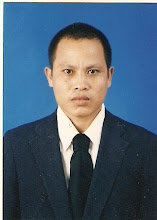NEW YORK, Oct. 10 (Xinhua) -- In 1982, The Christian Science Monitor carried a story in its February edition -- "China: Can a Communist system reform itself?"
The general public in the West, including Barbara Slavin, then a young, Beijing-based correspondent for The Economist magazine, was wondering at the time what would or could happen in this ancient civilization with the largest population in the world.
Slavin was posted in Beijing in 1982-1984 when China, to many Westerners, only pushed the door half open and still remained mysterious to most Westerners.
Slavin, now assistant managing editor of The Washington Times, admitted in a recent interview with Xinhua that she had never thought such tremendous changes could have happened in the relatively backward country, which is now the third largest economy in the world.
On returning to China in 1997, "I was stunned by the change," Slavin said.
She credited the change to the decision made by the Chinese government to give greater freedom, initially to farmers, to make economic choices and keep some of their profits.
This "unleashed the competitive skills of the Chinese people," she said.
"Before the policy was implemented, the Chinese people were forced to be 'equal' and to live in a very-low standard of living... to look alike and dress alike," she added.
This had suppressed individual initiatives, she noted.
"I remember writing a story about the responsibility system, which was Deng Xiaoping's major contribution to this country's countryside, allowing farmers to make decisions about what they want to plant, to keep surpluses and to treat the land so it belongs to them instead of to the state."
The responsibility system, or the household responsibility system, was a practice first adopted in China's agriculture in 1981 and later extended to other sectors of the economy, by which local managers are held responsible for the profits and losses of the enterprise.
This system partially supplanted the egalitarian distribution method, whereby the state assumed all profits and losses.
"It was really a crucial thing in terms of unleashing the potential of the Chinese people," Slavin said, adding that "all the rest came later, including the manufacturing reform."
"The key thing here was unleashing the potential in the countryside," she emphasized.
There was a period that Slavin did not go back to the country until 1997 when she passed through Beijing on her way to the Democratic People's Republic of Korea.
Since 1997, she has visited China several times as an accompanying diplomatic journalist with the U.S. secretaries of state.
Slavin said she tended to look at the change in China "from strategic and foreign policy terms" when asked about her views on the rise of China.
"Some people in the West do worry about the fast rise of China," she said. "I think overall it's been a good thing. If the Chinese people are better off, China will become more a player in terms of foreign policy and have more reasons to be a more responsible player -- a responsible stakeholder."
Senior U.S. newspaper editor: Reform policy unleashes competitive skills of Chinese people
Posted by Chanthy
Subscribe to:
Post Comments (Atom)


0 Responses to "Senior U.S. newspaper editor: Reform policy unleashes competitive skills of Chinese people"
Post a Comment